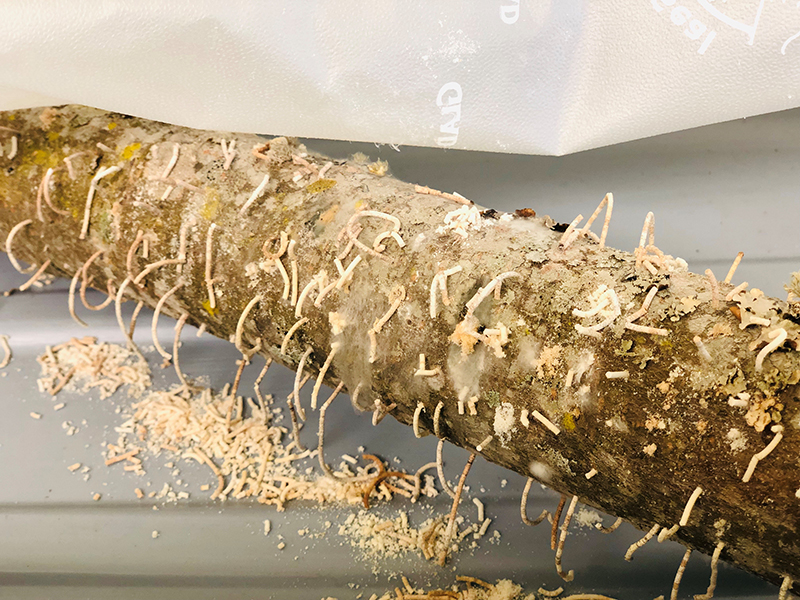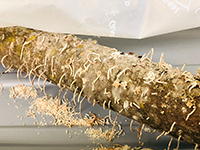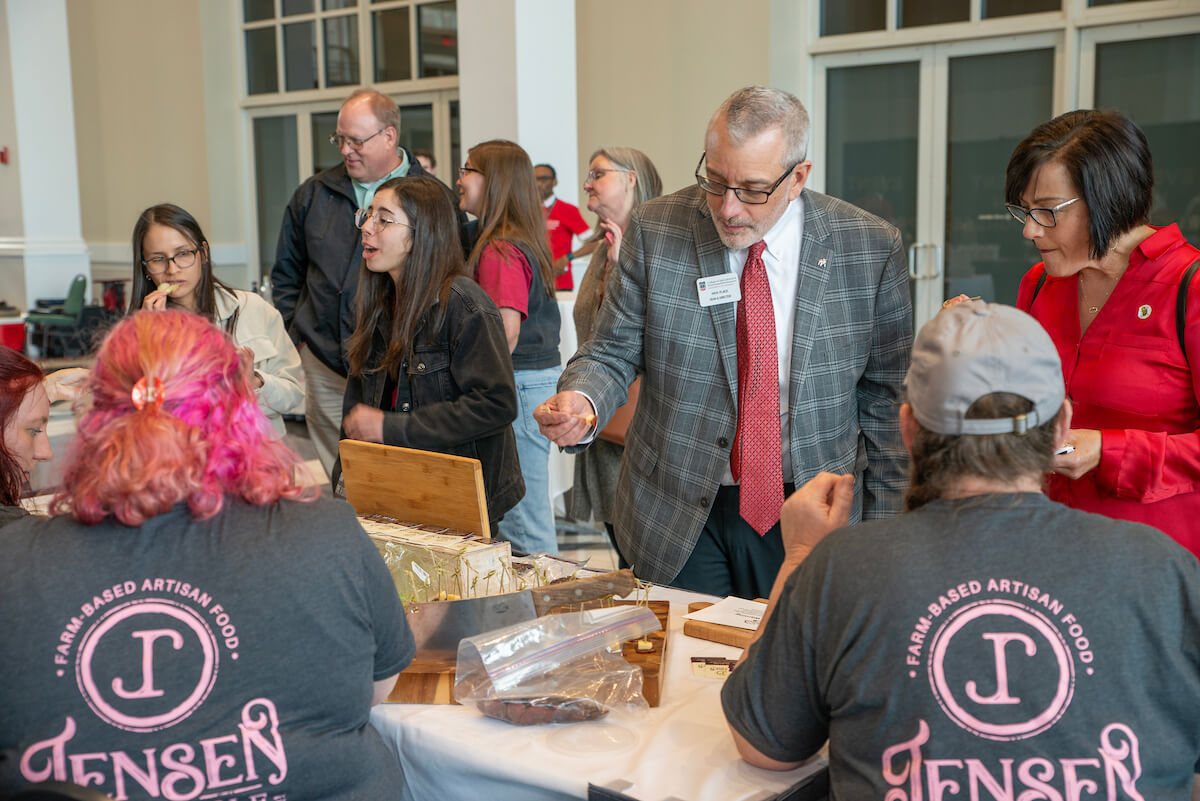Research entomologists in the University of Georgia College of Agricultural and Environmental Sciences (CAES) are using three grants to study ambrosia beetles in an effort to prevent future attacks and preserve more fruit and nut trees.
The first grant, $10,000 funded through Southern Integrated Pest Management Center, supported the work of a team of entomologists, plant pathologists and UGA Cooperative Extension specialists at CAES who are working with growers to help identify different ways to combat the issues presented by ambrosia beetles.
Shimat Joseph, an entomologist on the UGA Griffin campus, says the goal was to allow researchers to identify their specific research and Extension priorities. The grant allowed the group to understand and collate both basic biology/ecology and practical management information on ambrosia beetles, and assess the knowledge gaps guided by the feedback from growers and stakeholders.
“The funding help us come together as group so that we can prioritize needs and pursue a larger grant to conduct the needed research in a collaborative manner,” said Joseph.
The second grant, valued at $10,000 from Georgia Farm Bureau, will fund the survey and monitoring of wood-boring ambrosia beetles in tree nurseries, tree fruit and pecan orchards. The goal of the research is to determine which species of ambrosia beetles are attacking different types of trees in Georgia.
Brett Blaauw, UGA Extension specialist in fruit entomology, will study the beetles throughout the season in fruit orchards to determine which species are common in Georgia and to determine whether they pose a threat to trees.
While the researchers began working on this project this year, most of the research will be conducted next year.
The third grant, $73,000 from the Georgia Department of Agriculture, will fund projects aimed at improving monitoring tools and finding management strategies for ambrosia beetles in tree nurseries and tree fruit and pecan orchards. This grant will allow UGA research entomologists to trap ambrosia beetles in nursery and orchard systems.
“Part of our project is contingent on the growers and the attacks that they will be reporting to us,” said Angelita Acebes-Doria, an entomologist on the UGA Tifton campus. “Whenever we receive reports of growers having problems with ambrosia beetles we want to know to what extent the trees are being attacked and to verify the ambrosia beetle species responsible for the attacks.”
If the ambrosia beetles are found to have damaged infested trees too severely, with the grower’s permission, the researchers will dissect the trees to determine the species attacking the trees and compare them to the species captured in the traps. The grant will fund materials required in the season-long trapping, including ethanol lures and bottle traps, as well as funding student research assistants.
“Without these grants we would not have been able to complete the research,” said Blaauw. “I am grateful that agencies like the Georgia Farm Bureau and Georgia Department of Agriculture have grants that help support research projects like ours.”
Ambrosia beetles are insects that burrow holes in the trunks of ornamental, fruit and nut trees that are under stress. Their attacks are normally associated with young trees that are not well established or trees subjected to flood conditions and frost damage.
Multiple beetle attacks on a young tree can have detrimental effects on the overall health of the tree and, in extreme cases, can cause tree mortality.
“The higher number of attacks on the trees, the higher the chance that the tree will die. They attack a wide variety of host plants, not just pecans,” Acebes-Doria said. “They can (also) attack nursery trees, ornamental trees, and they can attack tree fruits as well, such as peach and apple.”
To learn more about the UGA Department of Entomology visit ent.uga.edu.








